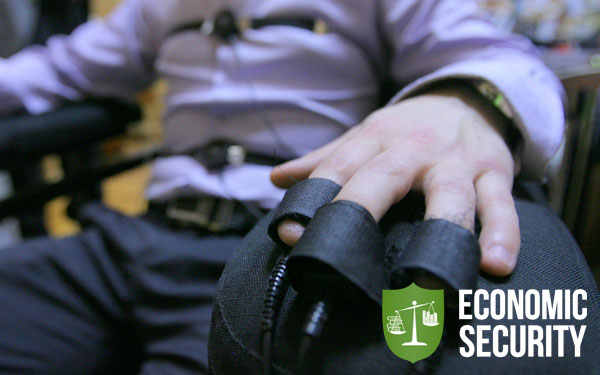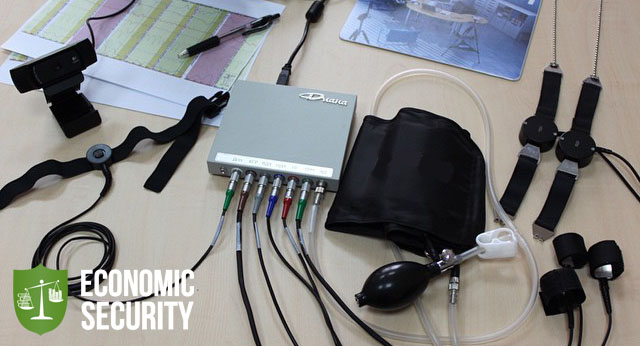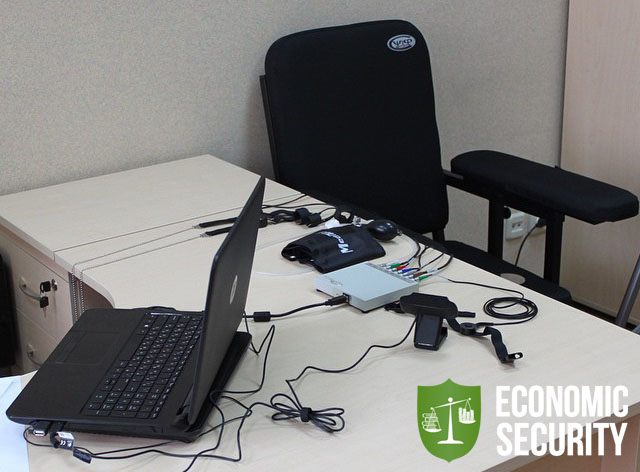
A polygraph was invented by American jurist and psychologist William Marston in the period of the First World War. The instrument became so popular, that rare police department ignored it in the 1940s.
In the meantime, Soviet Union scientists were working on the project of its own polygraph. Their first sketches appeared in the 1920s. Nowadays, polygraph testing is commonly used in criminal investigation, security, various business areas and some other fields. The main reason of its popularity is the high level of accuracy shown by this appliance – 98%.
A polygraph is a mobile computer equipped with special detectors. They help to fix every change in physiological parameters and nervous system reactions such as breath, blood pressure and heartbeats.
Fields of application
Polygraphs are applied in the following fields:
Criminal and employee investigations. In these cases testing is to check provisional data gained by investigators in advance. The results of the testing may be used in court sessions, but do not serve as unique and unquestionable evidence.

The polygraph is also applied for managing individual issues such as testing of domestic staff, proving loyalty between spouses and identifying bad habits and addictions which family members potentially hide.

Phases of testing
A polygraph examination consists of several phases:
Preparation. Preparatory phase includes collection of the relevant information and studying testees’ profiles. Based on the obtained information, an experienced polygraphologist makes a list of questions for the testing. The questions are divided into 3 groups: irrelevant, control and relevant ones. Irrelevant questions are very simple and answers to them are obvious. They are meant to get a testee involved in the questioning procedure and make sure that he / she is attentive enough. Control questions are put in such a way that the ‘no’ answer would be false anyway. For example: ‘Have you ever lied to your parents?’ Relevant questions have a direct bearing on the issue which caused the necessity to go in for the polygraph testing.
Establishing direct contact. Conducting the effective testing would be impossible without smooth interaction between the specialist and the testee. Certainly, the polygraph testing is rather specific area. That is why, it is crucial to get acquainted and establish good rapports. The polygraphologist must explain very clearly what the procedure’s goals and rules are. Participation in the testing is strictly voluntary. The person, taking part in the polygraph testing, must be in a state of physical rest. A brief ‘yes’ or ‘no’ answer is supposed to be given to all the questions.
In the beginning the participant must have a look at the questions which are supposed to be asked during the testing. He / she must understand in advance what questions he / she is going to answer. Although the questions are asked in a random way, irrelevant and control questions should follow the relevant ones. In the end, the tester puts the relevant question in other words and asks it again. Detectors fix breathing, heartbeats, dynamics of blood flow and other physiological measurements. There are no specified time limits for this type of service. That totally depends on the situation and on how intensive the testing is.

Summarizing results of the testing. The polygraph detects any changes in the testee’s body while he / she answers the tester’s questions. Key indicators fixed by the machine are the following: elevated blood pressure, high pulse rate, rapid breathing and blood capillary extension.
There are several types of detectors providing accurate and comprehensive data fixation. Breathing – registers parameters of chest and diaphragm breathing such as length, frequency, amplitude and holding. Galvanic skin reflex – measures electrobiological activity on the surface of the skin. Photoplethysmogram – serves to register blood supply in the peripheral blood vessels. And blood pressure and tremor detectors which also help to fix unusual abnormal body reactions.
The polygraphologist, conducting the test, compares and analyzes the changes in parameters fixed while the testee was answering different types of questions. Afterwards, the expert issues a decision on how honestly the questions were answered.
According to the recent statistics, modern polygraphs show approximately 100% accuracy. Several hundreds of researches, designed to define the level of accuracy and validity of this appliance, have been conducted over the last 75 years. Twelve tests have been held since 1980. They were based on more than 2000 real cases and again proved that the specialists prepared in a proper manner may provide 98% accuracy. It shows that the polygraph testing services, rendered by experienced specialists, are worth trusting. These are the most reliable, harmless and available means of the lie detection.
It is near-impossible to fool the polygraph. Those who try, normally use one of three popular methods – pharmacological, mechanical and psychological.
Pharmacological method is based on the consumption of various psychotropic stimulants, painkillers, sleeping pills or drugs. It also includes drinking alcohol right before the testing and intentional sleep deprivation. An experienced specialist is able to identify unbalanced behavior of the testee and cancel polygraph testing. In the final statement the expert will report on the attempt of the subject to work against the testing.
Mechanical method means intentional stimulation of the testee’s body by him-/herself every time they are asked a question. For example, they can put a sharp object in the shoes or bite the tongue. They initiate certain body reactions while asked control questions and do the same while asked relevant ones. That is how they try to influence results of the testing. However, experienced polygraphologists cannot be disoriented by this method, as they are skilled enough to catch any subtle movement of the human’s body and also facial gestures.
Those who use psychological method try to meditate while testing. Otherwise they solve mathematical problems, recite poems or focus on something good. However, the efficiency of this method is extremely low. Human’s consciousness is not able to influence vegetative nervous system and body parts responsible for the vascular distension and constriction.
The polygraph testing services include investigation which must be conducted only by experts. Nowadays, it is not difficult to find such specialists as well as a polygraph itself. This is also true for Nizhny Novgorod. The complete package for the polygraph testing services is provided in this city.
For more accurate results of the polygraph testing it should be held several times. Before the procedure, it is important to make sure that the equipment operates as it supposed to and meets all the necessary requirements. The price and the polygraphologist’s qualification must also be taken into consideration. Polygraph testing services in Moscow and Nizhny Novgorod have already been rendered for a considerable amount of time.
Experts of Economic Security will be happy to help you in solving any problem and provide security to your family and safety to your business.
 |
| 
